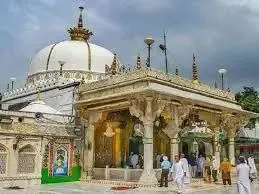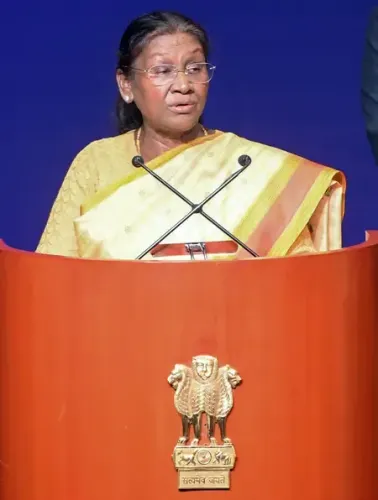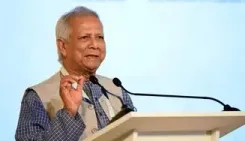Next Court Session for Ajmer Dargah Case Set for January 24

Jaipur, Dec 20 (NationPress) The second session regarding the assertion of a temple within the premises of Ajmer Dargah was held on Friday at the Ajmer Civil Court. After presentations from both parties, the court has scheduled the next session for January 24.
The case was brought forth by Vishnu Gupta, the National President of the Hindu Sena, who filed a petition alleging the presence of a temple at the dargah. In response, the Ajmer Civil Court issued notices to the Ministry of Minority Affairs, the Dargah Committee Ajmer, and the Archaeological Survey of India (ASI), announcing December 20 for the hearing date.
During the hearing on Friday, five individuals, including representatives from the Anjuman Committee, Dargah Diwan, and others, sought to join the case. Attorney Ashok Mathur, representing the Dargah Committee, filed a motion for the case's dismissal. Lawyers from both sides presented their arguments amidst heightened security around the court.
Petitioner Vishnu Gupta arrived at the court at approximately 11:30 a.m., followed by his lawyer Varun Kumar Sinha, who contended that additional parties should not be unnecessarily included. He also opposed the sharing of document copies and introduced two historical texts — The Prithviraj Vijay and The Ajmer Historical Descriptive — as evidence.
Lawyer Ashish Kumar Singh, representing the Anjuman Committee, referenced a Supreme Court ruling, arguing that the claim could not advance until a decision is made on a related issue. Meanwhile, Nasruddin Ali, son of the Dargah Diwan, submitted an application to join the case, asserting his family's lineage to Khwaja Saheb.
Vishnu Gupta underscored the ongoing debate regarding the Worship Act during the hearing. According to Gupta’s attorney, the dargah is not subject to the Worship Act. Gupta also supported the approval of an ASI survey application, expressing optimism that the court's ruling would reveal the historical truth.
Previously, Vishnu Gupta had asserted that the Ajmer Dargah is located on the site of the Sankat Mochan Mahadev temple and is not governed by the Worship Act, which is applicable to temples, mosques, and churches. He provided excerpts from the 1250 AD book Prithviraj Vijay as evidence and cited references in Ajmer: Historical and Descriptive, authored in 1911 by retired judge Harbilas Sarda, alleging that temple debris was used in the dargah's construction.
The Ajmer Civil Court initially accepted the petition on November 27, deeming it worthy of a hearing. Notices were subsequently issued to the relevant parties, and the first hearing occurred on December 20. The case continues to draw significant attention due to its historical and religious implications.










